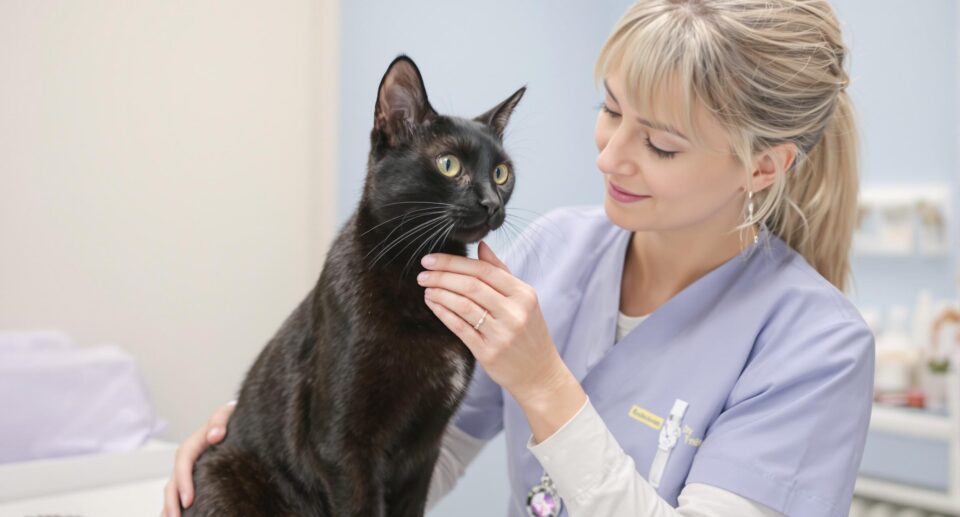How to Know If Your Cat Is in Pain

Often, a sign of your cat experiencing pain can be a simple change in behavior. Many cats will hide more, or show reluctance to handling or affection. With more severe pain, this may be accompanied by increased aggression and vocalization (meowing). Cats may hiss or growl when being handled or touched. Others will become very stiff or reluctant to move, and may even limp or become lame if the source of pain is on the leg. During a physical examination of your cat, the ears may be pinned back; the heart rate elevated, and pupils dilated. Nervous cats may excessively groom or pull their hair, leading to hair loss. Any cat showing these signs of pain requires close examination for punctures or bite wounds, since cat fights often lead to infections and abscesses that need immediate veterinary attention.
Try a homeopathic alternative for your cat’s pain
Managing pain in cats can be very challenging. Since drug options are limited for cats, many cat owners prefer alternative medication to treat their cat’s pain. T-Relief Tablets are a commonly used, helpful holistic product. These tablets contain a combination of homeopathic remedies that work to help reduce pain and promote healing in your cat’s body. This product often works best when used on a short-term or intermittent basis. It is especially useful for treating cat bite wounds and acute pain after surgery or trauma. Products such as Glyco-Flex II Feline Bite-Sized Chews which contain glucosamine, perna, and MSM can also be particularly helpful when managing chronic arthritis pain in middle-aged and older cats. Classical homeopathic veterinarians will often prescribe individualized homeopathic remedies for pain, and such remedies like Arnica and Hypericum are particularly useful for acute pain. Holistic therapy such as chiropractic treatment and acupuncture can also help manage both acute and chronic pain in cats.
Pain medication for cats
While there are many types of medication that can be used to control pain in dogs, veterinarians are much more limited in which drugs are available to manage pain in cats, since cats do not metabolize many of these drugs as well as dogs do. Aspirin-related drugs such as non-steroidal anti-inflammatory drugs (NSAIDs) may cause severe liver or kidney failure in cats even when given in small doses. Even the smallest amount of Tylenol may cause death when given to cats.
Recently the company Novartis released a new NSAID for pain relief known as Onsior for Cats. In their clinical trials, Onsior is labeled as being safe to use for short term use of post-operative pain following spays, neuters, and orthopedic procedures. Through a different method of action than other NSAIDs, Onsior for Cats is reportedly safer and much less toxic than other drugs of this class when used for short periods of time.
Prescription-controlled medications such as Buprenex are sometimes helpful in managing acute and chronic pain in cats. This drug is especially useful in managing pain from bladder inflammation or cystitis. Veterinarians have also used other prescription drugs of this class, including Tramadol and Torbutrol to manage pain in cats. Newer drugs being explored, Amantadine and Gabapentin, have also been used by some veterinarians.





